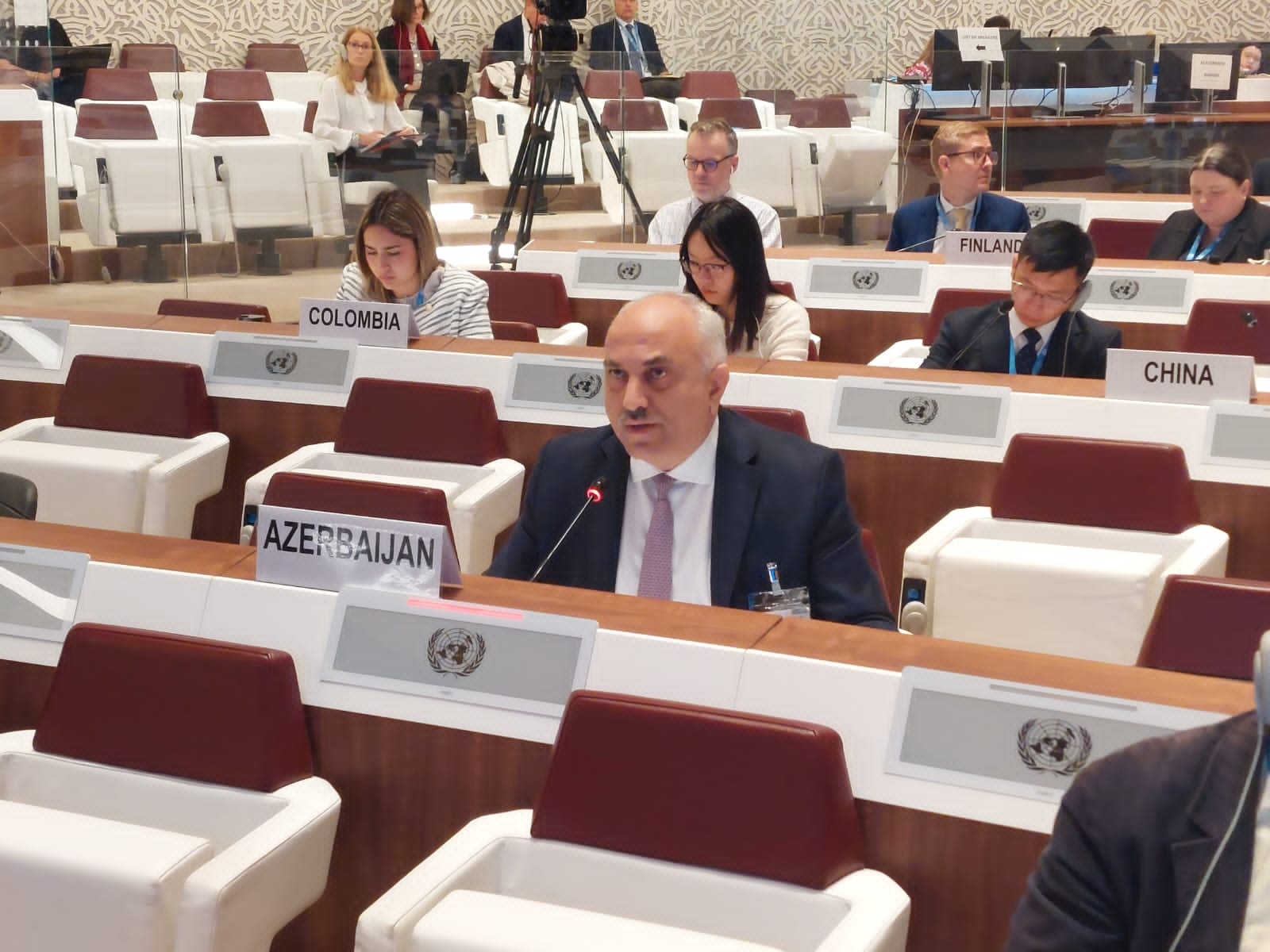
On October 10, Deputy Chairman of the State Committee for Affairs of Refugees and Internally Displaced Persons Fuad Huseynov took part in the 74th session of the Executive Committee of the United Nations High Commissioner for Refugees.
Fuad Huseynov spoke at the meeting on behalf of the Azerbaijani government gave detailed information on the occupation and deportation policy of Armenia against Azerbaijan, its history and consequences, refugees and internally displaced persons who faced severe hardships as a result of this policy. According to some reports, as a result of the victory in the Patriotic War, Azerbaijan restored its territorial integrity and sovereignty. Our compatriots, forced to live as refugees and internally displaced persons, now have the opportunity to return to their native lands. In the social policy of President Ilham Aliyev, support and care for refugees and internally displaced persons have a special place, First Vice-President Mehriban Aliyeva always pays attention to improving their living conditions, solving issues of education, healthcare, and cultural development.
It has been pointed out that I State Program for the Great Return to the liberated territories of the Republic of Azerbaijan, adopted in order to ensure the Great Return, is being successfully implemented. In compliance with modern standards, more than 500 families of internally displaced persons have been resettled in reconstructed and rebuilt settlements, and for the rest of the year, a total of about 2,000 families will be returned to the liberated territories. According to the First State Program of the “Great Return”, by the end of 2026 it is planned to resettle 34 500 families to the liberated territories.
Like internally displaced persons, over 300,000 Azerbaijani refugees have the right to return to their historical lands in safety and dignity. Azerbaijan is making serious efforts to fulfill its international obligations regarding migration and refugees in accordance with the spirit fair and fruitful collaboration. The state has repeatedly officially stated regarding the Armenians living in the Karabakh region that their rights and safety will be properly protected on the strength of the Constitution of Azerbaijan, they will have the same rights as our citizens. Azerbaijan is determined to reintegrate Armenians as equal citizens.
It is highlighted that, although Azerbaijan’s good intentions to achieve peace in the region and repeated calls to comply with the tripartite declaration requiring the withdrawal of all Armenian troops from the internationally recognized sovereign territories of Azerbaijan, Armenia continued to lay mines and maintain illegal armed groups on the sovereign territory of Azerbaijan. Azerbaijan, in response to military provocations, in full compliance with the norms of international humanitarian law, local anti-terrorism measures have been carried out and all measures have been taken to prevent damage. This time, civilians and infrastructure were not attacked. Safe conditions were created for Armenians wishing to leave Karabakh, they were provided with the necessary medical, food and other support. The UN mission that visited Karabakh in early October also stated that there was no damage to civilian infrastructure and no violence against civilians was recorded.
It must be stressed that, Armenia has demolished entire residential areas and littered Azerbaijani lands with mines and other unexploded military ordnance to such an extent that today, according to international experts, the area is considered one of the most contaminated in the world. From 2020 to the present, 331 Azerbaijanis have been killed and injured as a result of mines in the liberated territories. Among them there are internally displaced persons who have been looking forward to returning to their homeland for 30 years.
Despite the mining of territories and the complete destruction of infrastructure, confidence was expressed that with the joint efforts of the international community, Azerbaijan will be able to present a new model of post-conflict rehabilitation and reintegration of internally displaced persons in the next few years. It was reported that restorative justice for internally displaced persons is a strong foundation for any lasting peace and stability in the region and from this perspective, the end of this protracted conflict means the restoration of the basic fundamental rights of the IDPs who have become the human face of this tragedy.











